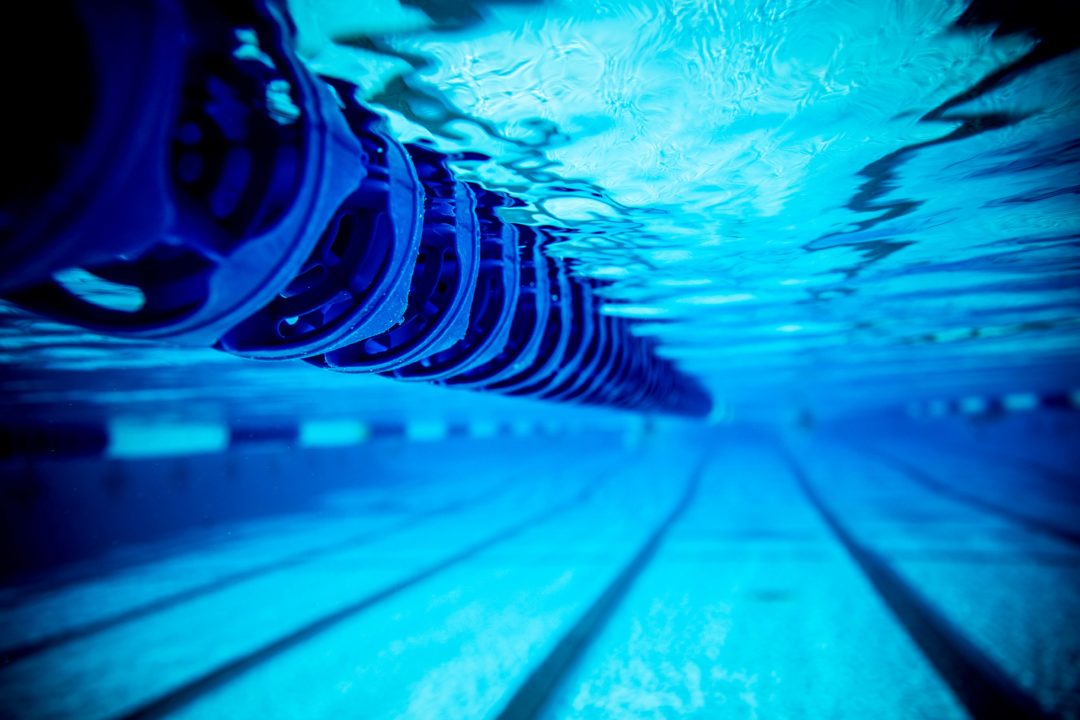Courtesy: Amanda Sovik-Johnston, Ph.D.
Have you ever spent hours dissecting splits from your last 1000? Or felt guilty about eating way more than your friends at lunch? Or even worried your friends won’t love you if you don’t hit your relay split? If so, join the millions of athletes that struggle with the stress and pressure associated with performing really well. Frequently, this level of anxiety fuels us to our best times; however, it is becoming increasingly apparent that we need to think about our overall mental health as we strive to reach our athletic goals. Here is our top 10 list of ways to take care of how a swimmer feels as a person (that is NOT related to performance, but may help it!):
1. You are more than your best times.
As a person who spends a lot of time in the pool, it is normal to feel highs and lows related to how you are performing. You wouldn’t work so hard if you didn’t care so much, right? And while your times are important, they are absolutely not a measure of who you are as a person. While it may feel like swimming fast is everything to you, your parents, your teammates… your times actually aren’t the most important thing in the world. What are your true values? Kindness? Hard work? Fun? I promise you, all of these are more virtuous than how fast you can swim a 50 free. At the end of the day, reflect on your TRUE values and measure yourself against that, not a pace clock.
2. Your feelings of anxiety and depression will go away– once taper starts.
Research demonstrates that swimmers actually feel worse in the middle of an intense training cycle. This makes sense– there is less time for friends, family, or any semblance of balance. But research also shows that, once taper and your championship meets are over, the feelings of stress and anxiety go away. They may even lead to joy, pride, and fun as you celebrate with your teammates. So if you identify with these lows, remember that they will go away soon and be replaced by other, more positive emotions. There is certainly a lot of hope for you now and in your future!
3. Figure out what you like about swimming BESIDES swimming.
Being a swimmer is a huge part of your identity. It is WHO you are. But there are many parts of swimming that you enjoy that are not the actual swimming, and these parts of the sport also tell you who you are. Love coaching summer league? You may be great with kids. Love being on a team? You are pretty social! Love setting goals and achieving them? You may be an entrepreneur. The idea is to figure out the different pieces of swimming that make up you, so that if the swimming part isn’t going as well, you have lots of other parts of yourself to pull from.
4. Eat the way you go to swim practice.
It can be hard to be in a bathing suit and be surrounded by bathing suits all day. People’s body shapes– and your body shape– can sometimes feel more important than what you are doing with your body. But that’s actually the opposite of true– you are going to swim practice because you want to swim fast and feel good, and you should eat in a way that supports those goals. Remember, if you don’t eat enough calories, or even eat too many, you won’t give your body the fuel it needs to build muscle and retain the gains you made at practice. AND undereating significantly contributes to anxiety. So do your research, talk to nutritionists, and see what other elite athletes are eating… it will only enhance your performance and you will feel better. And if this paragraph made you feel anxious, it may be worth talking to an adult, coach, or therapist about it.
5. Give your body the opportunity to recover… SLEEP!
Everyone knows how much we WANT to sleep at night, but sometimes it feels hard with balancing schoolwork, friends, and just relaxing. At least eight hours gives our body time to recover and, even more importantly, gives your brain time to encode the gains from the day’s practice into your memory. So if you hit a new pace or finally got your elbows a little higher, give yourself the opportunity to retain that feeling by getting the full 8 hours. Lack of sleep also significantly impacts feelings of anxiety, depression, and even your ability to pay attention!
6. Make your swim friends your real-life friends.
The most important job of teenagers and young adults is to develop an identity that is separate from their families. Identities include what we are interested in (swimming) as well as our relationships (friends). You simply don’t have enough time to spend three hours a day at the pool and have a full social life outside of the pool (most non-swimmers don’t go to sleep at 9:00). So in order to protect your identity development/mental health, prevent burnout, and improve your performance, make sure to put some energy into being a good friend to your teammates. It will only help you become a healthy adult who is good at both your job and in your relationships!
7. Decide what your goals are based on you as a whole person.
Sometimes achieving our swimming goals can come with stress and pressure. It’s easy to forget that WE can dictate the pressure we feel based on the types of goals that we set. If you don’t want the stress (which is ENTIRELY OKAY), you don’t have to set aggressive time goals. You could set goals around having fun, making friends, or just enjoying the season. This may feel weird when you have lots of adults telling you to “do your best” but, ultimately, you are the one carrying the load and those adults would rather you be healthy than swim fast, I promise. If this is resonating with you, talk to your parents or coaches honestly about goals that support your mental health.
It will take courage to start this conversation, and developing that bravery may be the most important goal of your season.
8. Think about the process, not the outcome.
We often think about goals as the times we want to hit at a big meet. This type of outcome goal can lead to increases in stress and pressure throughout the season, as everything depends on one swim in the future. Instead of focusing on the outcome, focus on the process of how you are going to get there– and be specific! You may decide you need to swim six times a week, eat a post-workout protein shake, and sleep eight hours in order to reach your goal. Feel pride on the days you put in the work! When you focus on the process, you will be able to relax about the big meet because you know you achieved your goal for the day. Moreover, when the big meet comes, you won’t worry as much knowing that you put in your work. Ultimately, consistently putting in the work is a much better measure of the kind of person you are than how fast you swim. So develop a healthy process, follow it, and give yourself a second to be proud of that every day!
9. Leave your swimming at the pool (which may mean creating a swimming notebook).
When you put so much of your physical and emotional energy into one activity, it is normal to think about it all of the time. However, the best athletes know that there must be balance in your life to be mentally healthy and stick with it for the long run. You have to think about friends, family, and TV shows to be a fully developed person! This means that you should limit the time you spend thinking about swimming when you are not at the pool. One of the easiest ways to stop the cycle of stress is to create a swimming notebook that you write in for five minutes a day. In the notebook, you can reflect on your process goals, your times on the main set, and how you felt emotionally and physically. After those five minutes of reflection, close the notebook and don’t think about it again! If five minutes isn’t enough, give yourself ten, but don’t go much over that. You have other important things to do!
10. Identify the moments of pure joy and relive them!
Make no mistake about it, swimming is a tough sport. It is easy to forget why we choose it when we are exhausted, upset about a bad practice, and sore. The best antidote for these feelings is to create a consistent one-minute window every day to reflect on a moment of joy that swimming has brought to our lives. Pull from a memory of a great swim, a good practice, or even something funny that happened in the locker room. A big laugh is just as important as a big swim. Remember what you saw, heard, and felt in your body. That is your reminder of why you put yourself through 6000 yards and early bedtime, so make a routine to focus on those highs EVERY. SINGLE. DAY. I promise you, there are lots of joys to be had in this sport, and making space to relive the good times is only going to make you a happier, healthier, and faster person.
 About Amanda Sovik-Johnston, Ph.D.
About Amanda Sovik-Johnston, Ph.D.
Amanda Sovik-Johnston, Ph.D. is a Clinical Psychologist who specializes in working with high achieving athletes and teenage girls. She is currently training for Masters Swimming Nationals this August. For more information on Amanda and her services you can find her at www.virginiafamilytherapy.com or on Instagram at Virginia Family Therapy, or shoot them an email at [email protected]

goodl ook
I would probably be so tired of the “teammates” that I couldn’t wait to get away from them .Being a quiet person who likes to keep to himself and being on a swim team with the same people for so much time trying to motivate each other continuously would drive me crazy.
I like the article but I’m troubled by #2. Sometimes anxiety or depression are not due to training intensity and I think that saying it’s normal to be depressed or overly anxious may discourage someone from seeking help they urgently need. I think the level of depression or anxiety must be taken into consideration.
Thanks for addressing the mental health side of this mentally crushing sport. I have questions about a couple of these though. I always feel like there should be an age of the audience attached to SWIMSWAM articles to clarify who they are addressing.
#2 Kinda tough to just promise people the absolute assurance that their anxiety and depression will go away and be replaced with more positive emotions. How should they feel if that doesn’t happen?
#5 THIS is always the biggest mind f*ck in swimming. Make kids/teens wake up at 4:30AM, which means going to bed by 8:30 at a time when there are tons of social activities happening, so many new experiences happening and then tell kids… Read more »
Great article on an important subject!
Thank you 🙂 I realized I had all of these lines that I tell people everyday— might as well write them down and share! Glad it was helpful!
Great article! Thank you Amanda for writing this, and for highlighting how to take a healthy, holistic approach to the season